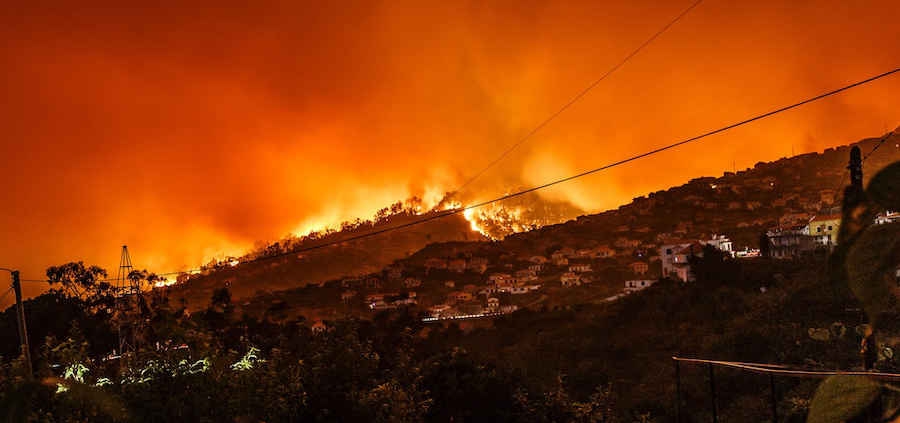Covid-19 and the Climate Crisis by Lorraine Villemaire
If you are always trying to be normal,
you will never know how amazing you can be.– Maya Angelou
Reading good books to children was a priority when I was an educator. A favorite was Alexander and the Terrible, Horrible, No Good, Very Bad Day by Judith Viorst. Alexander’s answer to circumvent the events of his regrettable day is, “I think I will go to Australia.” Like Alexander, all of us wish to get away from problems caused by Covid-19. However, the only country in the world free of the virus is Antarctica.
One great lesson learned from the devastating experience of Covid-19 is that each person is part of a whole and is deeply affected by the behavior of every individual in the whole. One person caught the virus and it spread quickly throughout the world. This lesson also applies to our destructive treatment of Earth, which is a more serious crisis than Covid-19. Extreme climate conditions affect every aspect of life for humans, creatures, and the planet itself.
Covid-19 and climate change have a lot in common. Scientists predicted both situations and they were initially ignored. The results of slow action on the virus is a wakeup call to plan now to avoid more serious universal climate catastrophes. Both of these issues must be treated with the same intensity.
Notice the change of language with Covid-19. Originally, folks wanted to get “back to normal”; now it is the “new normal.” There is no such thing as normal after over 200,000 deaths in the United States. The virus will be with us for a while. Scientists say it will get worse before it gets better. It will take 18 to 24 months for 70 percent of people to become immune. If we are lucky, a trustworthy and well-tested vaccine may appear in 2021.
It is difficult to write about climate change in the midst of a virus pandemic. Yet the two are related. For example, air pollution is a real threat to human life that kills 200,000 people every year. Carbon emissions have fallen during the pandemic because people are driving less, and there has been an improvement in air quality. There have also been negative effects. For instance, recycling facilities have been forced to close down or cut back on their ability to process plastics. This has led to a buildup of plastics, some of which can take up to 450 years to decompose.
Adding to the challenges of the coronavirus has been the extreme heat. The summer of 2020 was one of the hottest on record, with temperatures rising to 100 degrees or more in parts of the country. Inhabitants of Australia and California know the destructive effects from heat waves and tornado fires. And heat is not the only problem. Throughout the world, people are threatened with starvation because of crop failure, loss of livelihood, and flooding and other natural disasters.
Are these stories lost because they occur beyond our backyards? Why do people refuse to wear masks when consistently wearing one will save 70,000 lives, according to the University of Washington School of Medicine? Does telling someone what to do violate personal freedom? Do individuals like the convenience of using a plastic water bottle because it fits into a briefcase or pocketbook? Has society lost the sense that the well-being of all depends on each individual? What happened to the value “the good of the whole?” Individualism must consider “we-ism” in human behavior, since all of us are in this together. There is no vaccine for climate change.
There are many times in life when things do not go one’s way. Like Alexander, bad days and good days are part of everyone’s life, even in Australia. But there can be better days ahead. The reality is that the way people live is not sustainable and changing will demand a lot of effort. Everyone living for the good of the whole could turn the situation around. This is an issue of justice for all.
Lorraine Villemaire is a Sister of St. Joseph of Springfield with a B.A. in English and an M.A. in religious education. She has over 40 years of teaching, administration, and curriculum-development experience. Lorraine is the author of three books on the labyrinth: The Labyrinth Experience: An Educator’s Resource, The Labyrinth Program: An Educator’s Resource, and Labyrinth Experiences.





Leave a Reply
Want to join the discussion?Feel free to contribute!